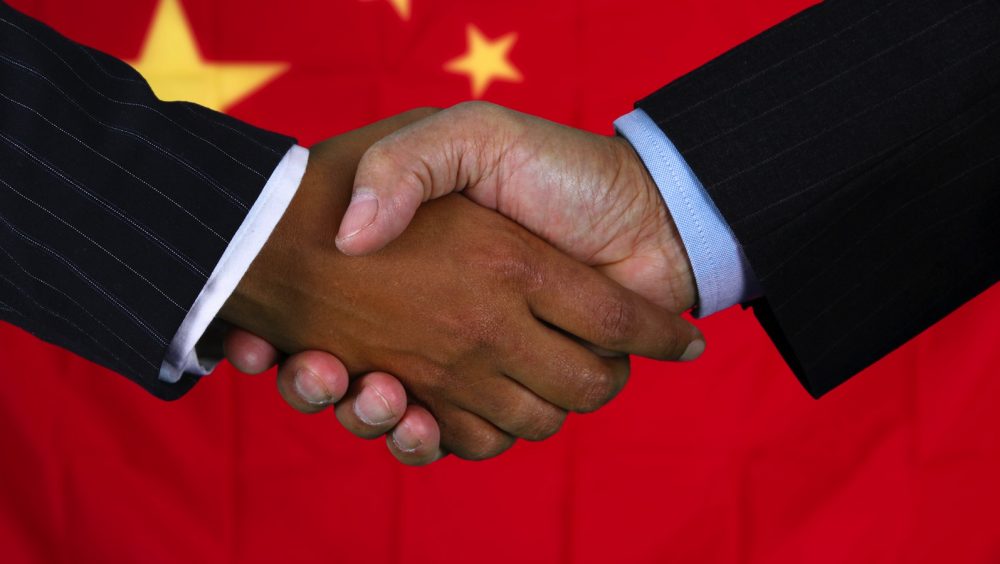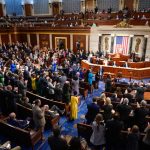By Olukayode Oyeleye
SELF DELUSION appears to be the definition of Africa’s excitement about China’s ubiquitous presence in the continent. The continent has never had it this challenging. From Mauritius to Mauritania, or Cairo to Cape Town, Lusaka to Lagos, Abuja to Abidjan, the story is the same. Ailing businesses are either being snapped up, or gigantic construction contracts won, by Chinese businesses with greater ease, just as Chinese loans pour in to finance those ‘investments.’ And those who spin the narratives of China’s growing presence in Africa would tell the story of a continent that has found an unusual saviour in China.
What do not seem concerning for Africa’s political leaders are the dire consequences of unquestioning acceptance of the Chinese, their expertise, loans, business enterprises and – by extension – their tactics. Try as China may, in its forays into Africa and its efforts at influencing Africa through some forms of inducements, the future of the world remains positively Western. Rooting out a culture that has been entrenched for more than two centuries will be an uphill task. For good reasons, the East has shown its limitations when it comes to carving out alternative development pathways for the developing countries.
Is it politics and governance? African countries will be treading slippery path by adopting the communist models of government. Is it education? The Oriental studies will not take Africa anyway near the Western pedagogy. Is it technological development? The path has been beaten by the westerners; only new branches of the old trees are expected to spring forth. Is it in financial institutions and financial systems? It is not clear if the bourses such NYSE, LSE will be easily supplanted by any newcomer from Beijing or Pyongyang. Not even by a more forward-looking HANG SENG index, much less the SHENZHEN or SHANGHAI SE index.
African countries seem to have been upbeat by the increasing presence of Chinese in the continent’s critical areas of economy, namely: construction of roads, bridges, airports, high rise buildings, stadia, telecommunication hardwares and communication support equipment. They have truly found a niche and exploited the vacuum created for now by some clueless new generation Western leaders whose forebears have invested a lot in human capital development of Africans but now are bereft of ideas on how to establish a lasting prosperity for Africa for the common good of the continent and the West. Even those countries of the West that have been pouring in enormous resources in development assistance seem at a loss on how else to better connect with Africa to boost modern investment and enterpises.
Thus, China would dole out billions of dollars to African countries as loans in questionable circumstances that defy sound professional logic and lack adequate inbuilt safeguard measures. They would approve loans for construction projects that failed Environmental Impact Assessment (EIA), or that provided inadequate guarantee of profitability, or safety, such as railway systems in Kenya and Nigeria. And the penchant of China for taking over a country’s strategic assets in case of default knows no limit. They cannot feign ignorance about the potential for failure of some of the projects they have released funds to execute. But when realities unfold, they go for the jugular. If the takeover of Hambantota seamport of Sri Lanka by China sounds like a far-fetched story, what about the one of China proposing to take over the Kenneth Kaunda International Airport should Zambian government fail to pay back its huge loan provided by China?
It looks therefore easier to define the boundaries of generosity, especially the one coming from China to Africa. So, when a Nigerian Minister tries to explain away the “ceding of sovereignty” clause in a Chinese loan to build railway system, you can easily fathom the superficiality of his reasoning and shallowness of his logic. But China’s ways are clear for any discerning people to see.
So, for Africa’s political leaders who gleefully cheer Chinese opportunistic presence and transactional relationship with countries within the continent, the end will justify the means. This will be more so when China is done with plundering Africa’s natural resources and mineral deposits, using it to feather its own nest. The Olympic (nest) stadium in Beijing could very well be a metaphor of this predatory tendency of China, being brought into practice in Africa. What can be more appalling in benevolence when China, after donating a $200 billion African Union building in Addis Ababa, decided to bug and wiretap, collecting confidential information from the AU headquarters’ server for some years before it was found out and stopped? Those who regale in China as overtaking the US as trade partners with Africa are telling one side of a multidimensional story. They should have asked Félix Tshisekedi of DR Congo, or Sierra Leone government, or yet Kenya on reasons for turning down certain business relationships with China. They should ask: Why is China, a modern-day champion of climate action and green economy so comfortable with logging and timber in DR Congo, in a business that contributes to the deforestation of this African country adjudged to be the hope of the world in nature conservation and climate stewardship? And this is happening when China strives to preserve its own natural habitats. It sounds counterintuitive and hypocritical, to say the least.
And to those who don’t understand the workings of state owned enterprises in China, the Huawei story of mobile telephony should teach some useful lessons. Simple economics of competitiveness would show that those corporations would dwarf competitors based on unfair advantages they enjoy from government support and may not allow Africa an opportunity to grow economically. So, China’s disposition to free markets should be easier for Africans to decipher. It is therefore up to African leaders to decide the terms, forms and the very characters of relationships they want to have with China. Since the outbreak of COVID-19 pandemic, they should ask themselves how many vials of vaccines has China willy nilly donated to Africa, a continent that they have so much love for and so much interest in. A bait is not set on a hook to feed a fish but to catch it. As they dance around the bait of FOCAC, they should think about what is hidden in it. As they troop to Dakar this time to meet their new found benefactor, African leaders should understand that China is not talking about a common forum for nothing, but is seeking to make a sustainable inroad to the continent and become the dominant new coloniser. In its expansionist programme, exemplified by the Belt and Road initiative, China would do the utmost to bring Africa within its grip and might use the resources of the continent to promote its authoritarian and communist agenda. Let these political leaders read between the lines and not get carried away by dummies sold to them by China, or what could well be a Trojan horse that will soon unveil the forces hidden in it. When to go to Dakar, what is to be done? Let the leaders be discerning. They should find out sooner than later, and should consider the fate of generations of Africans coming up when they sell out the continent to the ravaging East now on the platter of expediency and convenience.
Dr. Oyeleye is a consultant, journalist and policy analyst.
























Leave a comment